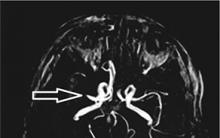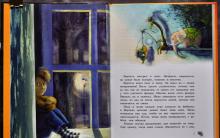Stage director - director creative group, working on the creation of a film, play or show.
Who is the director?
(fr. regisseur, from lat. rego manage) - the head of a creative team working on the creation of a film, play or show. The profession is suitable for those who are interested in world artistic culture (see choosing a profession based on your interest in school subjects).
Features of the profession
A production director is the creative leader of a film, television or theater project. He is responsible for the artistic component of the work. Actors, cameramen, a sound engineer, a production designer, a movement director, etc. work under his leadership. The literary basis is a script or a play, and the production director is not always their author. But in the end, it is he who is responsible for what the viewer sees. The success or failure of the project will be associated with his name.
A production director may specialize in the production of feature films or documentaries, theater performances, circus programs, music shows, mass events.
Usually the production director is simply called the director, because and without a clarifying “trailer” it is clear that he is responsible for the production. This applies to any production director, regardless of specialization.
Let us describe some options for this profession.
In the theatre the director directs creative team involved in the production: selects actors, works with them on roles, together with the sound engineer and stage designer thinks through the design of the performance, etc. At the same time, he reports to the creative director of the theater (if he is not one himself), and they jointly select plays for production.Organizational The assistant director helps him resolve issues during rehearsals and during the performance. He interacts with technical services, actors, and makes sure that everything happens without a hitch during the performance.
Circus art radically different from the theatrical. Just as a circus troupe differs from a theater troupe: circus performers work in dynasties, practicing their routines for years. They often involve a risk to life. In addition, the circus troupe is not only people, but also trained animals. The circus works to entertain the public, and the main task of the circus director is to make each act as bright and spectacular as possible. All this brings its own specifics to the work of a circus director. However, the principles of his work are similar to the work of a theater director. He thinks through the intrigue of the performance, works with the actors, production designer, design engineers, prop makers, lighting engineers, sound engineer and other participants in the circus show.
Movie- it's complicated manufacturing process. (Like television.) A film director has a whole team of assistants: a second director, a director for working with actors, an assistant director (an assistant director who keeps track of the footage), consultants, etc.
Although at least two of this crew are designated by the word "director", they perform other tasks. For example, the second director (in Western cinema - First Assistant Director) helps the production director in developing the director's script, formulates information for makeup artists, costume artists, acting assistants, etc., and plans the filming process. And he makes sure that the entire production process goes smoothly, that the set is ready for work every time, that the actors and costume designers are in their places, etc. This is a very large amount of work, and usually a film director has two second directors. The acting director (also known as acting assistant or casting director) looks for suitable performers for roles and organizes their photo and screen tests.
The main organizational burden when creating a film is borne by producers, who deal with issues of budget, distribution, etc. The film producer is also responsible for attracting key participants in the process, including the director, unless, of course, he himself is the initiator of the production. Both the producers and the director report to the management of the film studio. The director's work on the film begins with the script. He can take ready script, or can write it himself or in collaboration with a professional screenwriter. He can take ready-made literary work or a completely fresh plot. Even if a film director makes a film based on a ready-made script, he finalizes it in his own way: second-by-second and frame-by-frame he describes the shooting plan for each scene. The result is a director's script. He always studies materials related to the theme of the film and turns to specialists who can advise him on some issues. Participates in drawing up estimates and, together with the producer and second director, outlines a work plan. Together with the production designer, chief cinematographer, and sound engineer, he discusses the artistic concept of the film and its design, approves sketches, designs, scenery, etc. Together with the composer and sound engineer, he outlines the explication of the sound (graphic diagram). Selects actors (with the help of a casting assistant), works with each of them on the role, rehearses scenes, etc. Supervises the filming. When the filming process is completed, he selects the necessary takes and manages the editing and dubbing process.
Some directors successfully combine work in theater and cinema. For example, artistic director Lenkom Theater Mark Zakharov became known back in the 1960s as a theater director. Having headed the theater in 1973 (at that time - the Moscow Theater named after Leninsky Komsomol), he very quickly brought it to the ranks of the most popular in Moscow. Every performance by Zakharov is an event theatrical life capitals: “Funeral Prayer”, “Royal Games”, “Barbarian and Heretic”, the legendary “Juno and Avos” and many others. At the same time, he is the author of wonderful films, loved by millions: “The Twelve Chairs”, “ An ordinary miracle", "The Same Munchausen", "The House That Swift Built", "Formula of Love", "Kill the Dragon".
Workplace
A production director can work in cinema, television, theater, circus, etc. - depending on his specialization. Although some directors successfully realize themselves in different areas.
Salary
Salary as of 04/04/2019
Russia 17000—50000 ₽
Moscow 90000—90000 ₽
Important qualities
The profession of a stage director requires artistry, imaginative thinking, good intelligence, broad outlook, imagination, self-discipline, high ability to work and leadership qualities. One more thing important quality- sense of modernity. The director must feel how relevant a particular topic or idea is in the modern world.
Knowledge and skills
The director must master the theory and practice of directing, acting, the basics of stage and musical arrangement, camera art, understand the laws of dramaturgy. Knowledge of literary history is very important. visual arts, theater, cinema. Knowledge of classical and modern works drama, cinema. Knowledge is desirable foreign languages.
Where to study to become a stage director
Drama and musical theater
- Russian University theatrical arts- GITIS. Directing department. Department of Drama Directing
- St. Petersburg Humanitarian University of Trade Unions. Faculty of Arts. Specialty: Theater Directing
- Theater Institute named after. B. Shchukina. Directing department. Specialty: Theater Directing
And other universities of theatrical art.
Circus, show programs
- Russian University of Theater Arts - GITIS. Directing department. Department of Circus Directing. Specialty: Circus Directing
- Moscow State University culture and arts (MGUKI). Theater and Directing Faculty. Specialty: Theater Directing. Specialization "Variety Directing"
Specialty: Directing theatrical performances and celebrations. Specializations: “Directing theatrical performances and celebrations” and “Directing show programs.” - Russian State University physical culture, sports and tourism. Direction of “Directing theatrical performances and celebrations”
Film and television
- All-Russian State University of Cinematography named after S.A. Gerasimova (VGIK). Directing department. Specialties: “Directing feature films”, “Directing non-fiction films”, “Directing animated films”;
- Higher courses of cinema and television at VGIK. Professions: “Film directing”, “Directing non-fiction films and television films”;
- Humanitarian Institute of Television and Radio Broadcasting named after. M.A. Lithuania (GITR). Faculty of TV and Multimedia Directing.
Specialty code: 55.05.01 “Film and television director”
Graduate qualifications: Specialty
* The order in which subjects are indicated determines the priority of entrance examinations when ranking applicants.
** For foreign citizens and stateless persons do not have to undergo the test
Based on professional education
Description of specialty
As you know, the profession of film and television director is a key unit in film set. First, let's figure out what the main responsibilities of a director are. So, he has the right to select the script, casting for the main and minor roles, develop scenic and artistic aspects for the images of the film. Determine in what angle to shoot and with what cameras. Engage in precise coordination of the work of all crew members and actors. In general, several hundred people can work on one film. Today, studying to be a director is a serious task. To obtain higher education in directing, you must enroll in the specialty of film and television director.
This profession will be taught by masters of their craft, experienced professionals who have devoted many years of their lives to directing and television. Students are assigned a certain qualification, depending on the exact name and direction of the chosen specialty.
We list the main skills that students are taught as directors:
1. Ability to collaborate with authors and screenwriters of texts, as well as musical works;
2. Conduct a comprehensive assessment of works of literature and film scripts that are selected for film production;
3. Work on the concept of the upcoming film, engage in its development and enrichment together with other participants in the shooting, drawing data from historical documentation, as well as eyewitness accounts;
4. Carry out competent selection of appropriate personnel: good actors and musicians, cameramen, sound engineers, editors, make-up artists, costume designers, artists and other personnel;
5. Approve the composition of the creative team;
6. Properly distribute roles;
7. Conduct a step-by-step organization of film shooting, based on real calendar dates and guided by the allocated cost estimate;
8. Create rehearsals together with the actors;
9. Incorporate into your production artistic media- dances, songs, poems, music, play of light, decorations;
10. Calculate the cost of a cinema product;
11. Take direct part in the production of the project, independently search for sources of financing, develop advertising campaigns, and high-quality distribution of the film product;
12. Conduct a comprehensive assessment of spectator potential;
13. Create trainings and educational events for young, aspiring theater and film actors;
14. Engage in teaching the basics of acting and directing, as well as related fields of knowledge, in universities across the country;
15. Create works of cinema in a wide variety of genres, under the guidance of professional directors and the assistance of composers, artists, actors, screenwriters, cameramen, sound engineers, editors, scientific consultants and other specialists in the cinematic process.
About the director's profession, field of activity.
The doors are open to the director various fields activities, for example on television, radio, newspapers, commercial structures. After graduating from university, he can occupy the following positions:
- director;
- teacher;
- sound engineer;
- and others.
Also, a director can realize himself in theater or circus productions.
How easy is it to get a job? Of course, if you have gained fame, projects will find you on their own. But it’s not easy for newcomers to directing, just like in any other business.
A good place to start your career is as an assistant director. You will gain all the necessary experience, gain practical knowledge and skills by performing small tasks and instructions from a competent professional. After all, he has accumulated his experience over the years. The next stage of development and career growth will be the position of director. You will be the first assistant director at major events and projects and, by controlling the supporting processes, will demonstrate directorial skills.
Disciplines studied for the entire period of study in the direction of “Film and Television Director”
|
The Department of History and Historical Archival Science was created in 2018 within the framework of the Faculty of State cultural policy. At the same time, the department teaches Russian history and foreign countries at all faculties of the Moscow State Institute of Cinematography.
Department of Pedagogy and Psychology
The Department of Pedagogy and Psychology dates back to the first years of the existence of our university. The department carries out vocational training Bachelors in the field of preparation: “Arts and Humanities” profile “Artpedagogy”. An art teacher is a unique specialist who knows how to use traditional pedagogical methods in synthesis with various types art in personality development.
Department of Philosophy
The Department of Philosophy was formed in October 2018 on the basis of the Department of Social and Philosophical Sciences, which existed since March 2010.
The main function of the department is organization and coordination educational process And scientific research aimed at studying current philosophical problems. Employees of the department study theoretical and historical problems of philosophy, types of philosophical thought; develop a methodology that is most effective for current state philosophical sciences.
Department of Tourism
The department prepares bachelors and masters in the field of preparation Tourism. Bachelor's training profiles: Technology and organization of excursion services, Technology and organization of tour operator and travel agency activities, Historical and cultural tourism; master's degree profile – Organization and management of tourism business.
Department of Management and Technologies of Social and Cultural Activities
The Department of Social and Cultural Activities is one of the oldest departments of the university, which continues and develops the best traditions of university training of specialists in the socio-cultural sphere. It is the leading department of socio-cultural activities in the country, determining the content and direction of development of Russian socio-cultural education, setting the tone for many innovative endeavors, contributing to the formation of a new generation of cultural workers, scientists and teachers.
Department of Cultural and Leisure Activities
The Department of Cultural and Leisure Activities provides training for bachelors and masters in the direction 51.03.03: “socio-cultural activities” in the profile “staging and producing cultural and leisure programs.”
Department of Economics of Culture and Law
The department employs exclusively doctors and candidates of science - highly professional specialists in the field of economics, marketing, management, sociology, political science and law, with experience working in organizations and government bodies at the federal and regional levels.
Department of Museum Affairs and Cultural Heritage Protection
The training of museum personnel has been carried out at the IPCC since 1986. Department of Museum Affairs and Security cultural heritage began its activities on February 27, 2017.
Department of Cultural Studies
The department trains culturologists in the following profiles: history of culture, art culture, intercultural communications, and art historians with a specialization in art history.
Department of Linguistics
The Department of Linguistics was created in 2018 within the Faculty of State Cultural Policy. The task of the Department of Linguistics is to expand the cultural linguistic horizons of students, the formation of a spiritual community, the study of philological disciplines in comparison with the history of the development of Russian culture, including as an element of world culture.
Department of Foreign Languages
The Department of Foreign Languages of the Moscow State Institute of Cinematography is one of the oldest and most remarkable departments of the university. It was created in 1938. Under the leadership of the head of the department, Professor L.A. Zhumaeva, there is an efficient, creative, professional team that, for the first time in the history of teaching foreign languages, began to create teaching aids, specially designed for universities of culture.
Department of Information and Library Activities Management
The department was created on the basis of the subject-methodological commission of organizational and managerial disciplines of the department of library science, and has been operating independently since June 1, 2004.
Department of Informatization of Culture and Digital Libraries
The department was founded in 2000 to train personnel in the specialization "Technologist of automated library and information systems." For this qualification, a set of disciplines has been developed, focused on the use of new technologies.
Since 2015, the Department of Informatization of Culture and electronic libraries is the base department of the IPCC in the State Public Library for Science and Technology.
Department of Documentation and Archival Science
The Department of Document Management and Archival Science recruits applicants in the direction of “Document Management and Archival Science” with the award of the degree “Bachelor of Document Management and Archival Science.”
Department of Library Science and Book Science
The Department of Library Science was founded in 1933. She is the oldest at the university.
The Department of Library and Book Science provides training in the direction of “Library and Information Activities” with the award of a bachelor's degree.
Department of Pop-Jazz Singing
The Department of Pop and Jazz Singing trains specialists in the field of professional musical and pop art in the specialty " Musical art pop music”, specialization – “pop-jazz singing”.
Department of solo folk singing
The department prepares specialists in the field of training: The art of folk singing, profile: solo folk singing, graduate degree: bachelor, master, qualification: concert performer, ensemble soloist, teacher. Form of study – full-time and part-time.
Department of Academic Singing
The Department of Academic Singing trains specialists in the field of professional vocal art in specialty 051000 " Vocal art" (qualifications: " Opera singer. Concert chamber singer. Teacher" (specialty); “Concert chamber singer. Teacher" (bachelor's degree).
Department of Special Piano
The Department of Special Piano was opened in 2001. The department produces bachelor's and master's programs. During its work, the department has trained graduates who successfully work as teachers and accompanists in leading educational institutions Russia and abroad, including at the Russian Academy of Music. Gnesins, MGIM im. A.G. Schnittke, GMPI named after. M.M. Ippolitov-Ivanov, leading children's music schools and children's art schools, including at the Central Children's Art School. Khimki, MEO "Joy", Children's Music School named after. A. Verstovsky.
Department of Theory and History of Music
The department provides fundamental training for musicians - specialists and bachelors - of all areas of training and profiles in the musical theoretical cycle of disciplines.
Department of Orchestral Conducting
The Department of Orchestral Conducting leads educational activities in the areas: "Musical and instrumental art", profile "Bayan, accordion and plucked string instruments" (by type: domra, balalaika, guitar, ringed psaltery, keyboard psaltery), profile "Orchestral stringed instruments"(by type: violin, viola, cello, double bass, harp), level of training - bachelor's, master's; "Conducting", profile "Orchestra conducting folk instruments", level of training - bachelor's degree, master's degree; profile "Opera and symphony conducting", level of training - master's degree."
There are not many talented workers in the film industry in Russia, but they still exist. And most of them graduated from the leading Russian cinematographic university - the All-Russian state institute Cinematography named after S.
About the Institute
VGIK was named in honor of the great Soviet director, actor and screenwriter - Sergei Apollinarievich Gerasimov. This person contributed huge contribution in the development of cinema in Russia. During his life he received great amount various awards, including the Lenin Prize, three times Stalin Prize, State Prize of the USSR, and was also awarded the title of Hero of Socialist Labor.
In addition to his cinematic activities, Gerasimov was actively involved in politics, was a member of the All-Union Communist Party (Bolsheviks) party, and also a Deputy Supreme Council USSR 3-4 convocations.
The institute itself was actually founded on September 1, 1919, but then it was called the “State School of Cinematography.” It received its current name in 1938, however, then instead of the word “All-Russian” they used the word “All-Union”.

Faculties
The All-Russian State Institute of Cinematography named after S. A. Gerasimov trains almost all categories of specialists in the field of cinema. The main faculties are as follows:
- Acting.
- Director's
- Art.
- Faculty of Production and Economics.
- Cameraman.
- Scenario.
- Animations and multimedia.
All VGIK faculties prepare specialists of the highest level, and students are recruited according to the workshop principle. The bottom line is that one of the teachers in a particular field opens his own workshop, which recruits a certain number of students and supervises their training throughout the entire period. Students attend lectures by professors (VGIK), whose specialties cover various subjects, but the master is primarily responsible for the students and teaches the main professional subjects.

Directing department
The director's profession is one of the most important in the production of a film, because it is this person who decides what the film will be like, what it will be about, who will star in it, and, accordingly, the main burden of responsibility for the success of the project falls on his shoulders. Directing department of VGIK for long years Many talented and successful directors have produced works who have contributed to both domestic and world cinema. Among them are people such as:
- Andrei Tarkovsky.
- Nikita Mikhalkov.
- Vsevolod Pudovkin.
- Sergei Bondarchuk and other talented filmmakers.
The directing department trains specialists in four different areas: feature films, non-fiction (documentary) films, sound engineering and animated film. These areas are very different, and the approach to work in them is radically different, so each of them has its own workshop.
The duration of training in general is 5 years. During this time, students attend lectures both in basic disciplines directly related to directing and in general education. The latter includes, for example, the history of world cinema and the history of fine arts, as well as a number of similar subjects.
In addition to lectures, future directors perform practical tasks, and at the very end of the training they film their main work, which is a full-fledged short film.

For applicants
Recruitment takes place on a competitive basis and is carried out in 3 stages. The first is an interview. It takes place after the applicant has already sent everything Required documents. At the interview, the commission determines the person’s general cultural level, as well as the degree of his knowledge in various fields of art. At the same stage, analysis occurs creative works applicant, which must be attached to the documents when sending. These works represent some of the most successful photographs taken by a person biographical sketch, as well as a story about some interesting incident from life.
The second stage is a creative test. It also represents written work, but this time the applicant writes it on the proposed topic and in the institute building. No more than 6 hours are allotted to complete the work.
The third stage is a professional test. This stage consists of two parts. The first is reading an excerpt from literary prose, a poem and a fable. The applicant chooses the source texts independently. The second part consists of various creative tasks which will help determine the degree of development creative thinking applicant. It is impossible to describe these tasks, since they can be absolutely anything, but what they have in common is that in any case you will have to show creativity and out-of-the-box thinking.
That's all. After the applicant has gone through these 3 stages, he can only wait for the results.

Actors
Despite the fact that VGIK faculties produce specialists mainly in the field of cinema, they also train theater artists.
The duration of study at this faculty will be 4 years. During this time, students go through all the stages of becoming a professional actor, starting with small sketches and reaching large performances and films. The basis of training is the methodology of the famous Russian figure theater and cinema by K. S. Stanislavsky.
Students of the acting department study not only professional subjects, such as stage speech or stage movement, but also general educational subjects, which include the history of world cinema and theater.
How the exams work
Enrollment in the acting department also occurs in 3 stages. At the first stage, applicants undergo photo and video tests in order to demonstrate their ability to act in front of the camera.
The second stage is a creative test - reading by heart a poem, a piece of prose, or a fable chosen by the applicant.
The third stage is the interview. It is carried out to determine the general cultural level of the applicant. Members of the commission ask a variety of questions, one way or another related to the topics of art and acting.
After all three stages the commission determines the list of those admitted to the acting department and recommended for budget places, that is, those who dialed greatest number points.

Cameramen
The cinematographer plays a huge role in the viewer’s perception of the picture, because it is he who is responsible for how expressive the frame will be and how much the viewer can understand from it.
The work of an operator is difficult not only creatively, but also technically, because modern film equipment is at a very high level and not everyone can cope with it.
Graduates who graduate from the cinematography department of VGIK leave the institute as true professionals. They are capable of creating beautiful videos and photos, and they also have the opportunity to take part in major film projects and make themselves known to the whole world.
The duration of study is 5 years, and during that time students are engaged in both theoretical and practical work, honing his skills in photo and video shooting.
Admission process
To enter the camera department, as well as other faculties of VGIK, you must send a folder with documents, but in addition you must attach a portfolio of the most good shots, after which the commission evaluates this work and conducts a number of additional tests. If the applicant copes with everything technical specifications, he is invited to an interview, at which the commission determines its final decision.

Finally
In the territory Russian Federation There are not many universities that train specialists in the field of cinema. This is due largely to the fact that the profession does not require large quantity people who are ready to simply work for money. It requires a creative approach, a deep understanding of your business and high level professionalism. And all this is taught at the leading Russian cinematographic university; we reviewed the faculties of VGIK in the framework of this article.
People ask me (and this happens all the time) where the best directing schools are, and how (and where) is the best way to get into directing for theatre, television or film. Although there are not many directing departments, I decided to speak on this topic in more detail. Let me make a reservation in advance: we are talking about the directing departments of Moscow universities (i.e., Moscow).
Of course, I wouldn’t be me if I didn’t advise enrolling in drama directing at my native “alma mater” - RATI-GITIS. Yes, yes, the force of inertia and habit is at work here: after all, I studied there for five years. Which flew by like one day. And what names (we have now): Sergey Zhenovach, Leonid Heifetz, Oleg Kudryashov, Evgeny Kamenkovich, Dmitry Krymov... Behind each name is, if not a whole era of theatrical art, then at least half an era - for sure.
However, earlier (back when I was studying) the composition of the drama directing department was, in my opinion, stronger. Firstly, M.A.’s workshop has sunk into oblivion. Zakharov and (and once upon a time, along with Oleg’s workshops Kudryashov and Sergei Zhenovach Yes, it was considered the strongest workshop of the directing department of GITIS). Secondly, for various reasons, several really strong teachers who previously (and long time) were part of the “star” workshops - but integral and self-sufficient creative units. In particular, German has not taught at RATI for a long time Sidakov, who opened his own theater school, within which he is trained in “synthetic” directing, M.L. works as a regular teacher. Feigin, previously part of the workshop of S.A. Golomazov A. Sergei Golomazov himself, a VERY bright and original master with whom I took my “universities,” is not a member of the directing department. Did they get an equivalent replacement? In my opinion, unlikely.
This, however, does not mean at all that training at the directing department of RATI-GITIS has become weaker in recent years. Not at all. There are still places to go and people to teach. Another thing is that, in my opinion, there is a lack of “younger generation” among those teachers who in the future could replace the luminaries. There are few personalities. Those who represented something left or changed their status. And others... No, no, I won’t say anything so as not to offend anyone. But, of course, I have my own opinion about what is happening at the directing department at RATI.
I must say (and this is my strong opinion, tested over the years and by the news of colleagues) that studying at the directing department (for actors) is better than at the acting department. And this despite the fact that recent years there (at the acting department) the composition of the department almost completely changed (Vladimir appeared Andreev,Boris Plotnikov, Sergey Golomazov, Paul Borodin), which, of course, greatly improved the quality of training. In the same time, The acting department of the RATI has never been considered a particularly strong place for training actors, “to please” the more top-end “Pike”, “Sliver”, and partly the Moscow Art Theater School-Studio. However, everything ultimately depends on the workshop. Personally, I liked the way craftsmanship was taught in our course. Although, now I clearly understand where and what mistakes were made by the teachers, and what could be improved (and significantly) in the preparation.
The age for admission to directing at RATI has no clear limit. As a rule, an applicant 30-40 years old is considered suitable for enrollment. Duration of training: 5 years. The number of recruitment places is not clearly regulated.
Previously mentioned by me "School of Drama of German Sidakov"- these are short-term (4 months) acting and directing courses “in one package”. Sidakov - promotes comprehensive training in related theater and film professions, in general group actors, directors and so-called “showrunners” are engaged in— screenwriters and producers are those who develop the idea of a short film and bring it to film embodiment. Wherein, The teacher does not differentiate teaching by niches, cinema and theater are perceived by him as a single creative organism, as a result of which there is no need to separate the training methodology.
Reviews of the school among professionals are extremely positive. If you don’t want to bother with entering classical theater (or film) universities, then this option is just right for you. Although, to be honest, I don’t quite understand how you can master a profession in 4 months. But this probably screams the excessive limitations of my perception.
Directing department Theater School Boris Shchukin- essentially the “younger brother” of what is in RATI. Although “by name” he deviates slightly from his “elder brother”: Sergei Yashin, Yuri Pogrebnichko, Yuri Eremin, Rimas Tuminas— they completely create an aura of “branding” and “nobility”. There are no significant (and very specific) differences in teaching methods between RATI and Pike, but there is a difference in the number of applicants recruited: no more than 28 per course, 50% of which are budget-funded. Besides, if at RATI (in certain cases) you can be enrolled immediately in the second or even third year (this is rare, of course, but such cases have happened), then at “Pike” you will have to start studying from the first year, even if you are as talented as Stanislavsky :)) It’s a pity, but that’s how it is.
By the way, it should be added that - You can also enroll in distance learning at both RATI and Pike. Its specificity is expressed in the fact that you will go to “face-to-face” classes - from time to time. To be honest, I’ve never heard anything special about correspondence courses. good reviews or words. However, if you live somewhere far from Moscow and do not plan to move to the capital or its adjacent areas, an absentee program can become a completely self-sufficient starting point for your creative biography. Although - without extreme reasons - to recommend correspondence form theater training for residents of the capital or near the capital - I would not.
Moscow Institute of Television and Radio Broadcasting (MITRO)- the project is, of course, VERY promoted. The Institute positions itself as the most comprehensive cesspool of training in related professions of theater, film and television (show business). Almost every week there are master classes and thematic classes from the invited "stars". Moreover, it doesn’t matter whether they are stars with fundamental creative training or people with, so to speak, ambiguous creative environment reputation, but “exposed” on TV. But there are, of course, many times more “frontments”. Nikita Mikhalkov, Timur Bekmambetov, Alexander Filippenko, Eugene Mironov, Vladimir Vladimirovich Posner, Vladimir Khotinenko, Vladimir Menshov- here is a very incomplete list of leading MITRO master classes.
The presence of such “names” on the lists of people teaching MITRO classes is, of course, amazing. However, what is surprising is that in all the past years (until now) I have not received a single expert (or simply amateur) opinion about the quality of education received at this university. Of course, I exist mainly in a theatrical environment, and MITRO comes from a slightly different opera. But - nevertheless... There is a university, it is promoted, but there is absolutely nothing to say about it (essentially).
Personally, this whole information boom gives me the impression of a kind of incessant cinema-TV party with a spot of streamlining of individual Russian stars, which (party) lasts forever and (almost) does not involve serious training creative professions. This is my personal feeling. Which may not coincide with reality.
The number of available places for MITRO courses is not officially regulated. The university is “famous” for having the shortest (among its existing analogues) set of documents for admission: passport, educational document and three photos. Duration of training (acting and film and television directing): two years.
If you want to engage in film or television directing, it makes sense to pay attention to Institute of Television and Radio Broadcasting (GITR). This is a budget and little-promoted analogue of MITRO. But - with a rather strange reputation. Although... if you are not afraid of difficulties, then go ahead!
Since March 2017, in our Moscow theater school short-term (two-month) directing courses are opening. They are addressed to those who want to enter the directing department - a theater university. I won’t explain anything in particular, all the information is presented »











Consequences of tubal ligation during caesarean section
The benefits of sunflower seeds for the heart, hair and nerves
Why do my legs give way at the knees?
Name energy: how the patronymic influences fate and the birth program Name patronymic meaning character
First Chinese Emperor